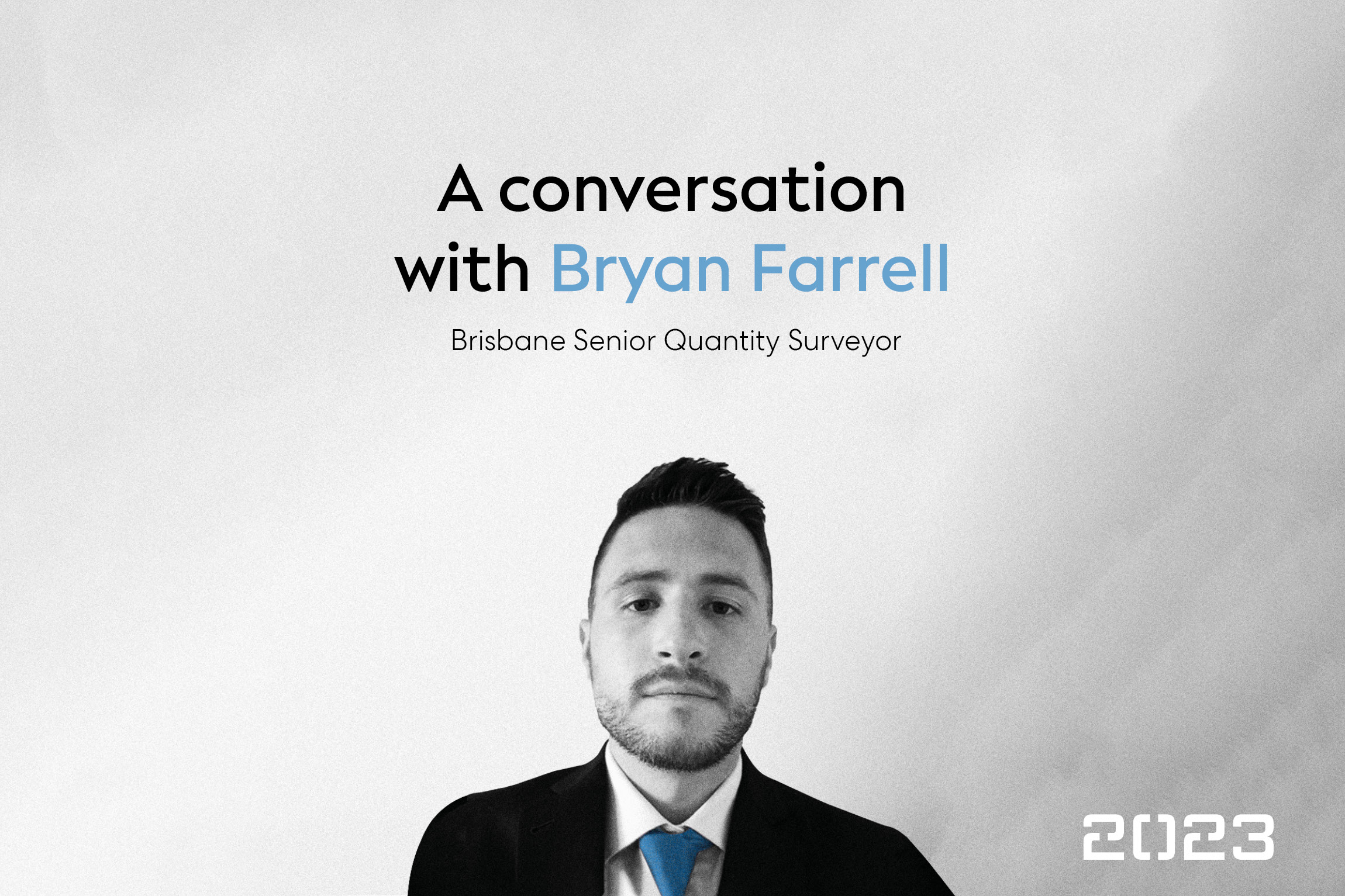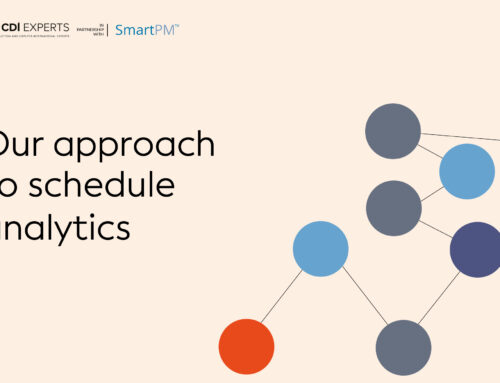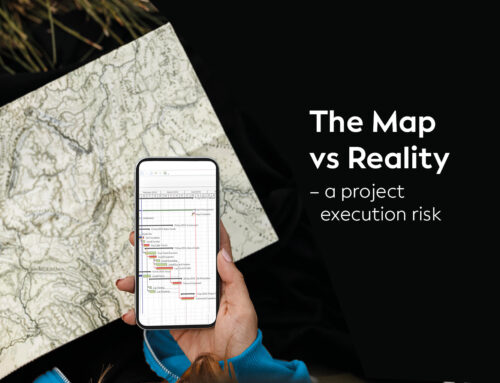We sat down with Bryan Farrell to talk about his roles as a Senior Quantity Surveyor in Brisbane.
Bryan has established a ten-year career as a dedicated and driven Senior Quantity Surveyor within the construction industry since his initial education and training in the UK. Having initially worked within the contracting environment in the UK, Bryan worked across a range of commercial building sectors including residential, commercial, education, and mixed-use. Bryan was the lead Quantity Surveyor on a number of these projects. Bryan is driven by implementing the highest possible standards and overcoming challenges in order to achieve the best commercial outcomes.
Please contact him if he can be of assistance; he is always open to exploring ideas or providing his thoughts on quantity surveying, cost control and commercial management. We sat down with him to find out more about the work he does and his field of expertise in quantity surveying.
1. What can you tell me about CDI Experts? What do we do and for who?
CDI experts are located in Australia, predominantly Perth and Brisbane at this stage, as well as Kuala Lumpur and the Middle East.
Our services sit in three areas:
1. Project Consulting, which includes best practice and troubleshooting; planning & project control; quantity surveying; contract administration; claims management and preparation; commercial management.
2. Consulting Expert, which includes delay, disruption & quantum expert analysis and reports in support of claims, negotiations, mediation, and adjudications, and
3. Independent Expert, which includes delay, disruption & quantum expert analysis, reports and testimony for arbitration and litigation.
Our clients are owner, engineering, contractor, defence, and government organisations that that work on projects in:
Natural Resources – Oil & Gas; Mining and Metals; Liquide Natural Gas (LNG), and Power Generation & Renewables
Infrastructure – Road and Rail; Waterways and Marine; and Utilities
Commercial, Industry & Property – Retail, Commercial and Manufacturing; Education, Healthcare and Hospitality; Sport and Public Open Spaces; and Residential
2. How has your day been? What did you get up to?
Yeah, great, thanks, we’re busy. We’re kind of all hands on deck at the moment, and obviously, we’ve set up the Brisbane office just a few months ago, so we’re doing a lot of tendering and chasing work at the moment. And so we’re looking at a couple of things at the minute where we’re giving some advice to the Balonne Shire Council in southern Queensland on their energy strategy. They’re looking to upgrade some of their existing energy infrastructure to renewables and different things like that. So we’re giving them some advice. And we’re looking at a lot of different things. So yeah, we’re in that at the moment and we’re still recruiting. We’re still setting up getting our office in here, getting our processes sorted and things like that. We’ve just been approved in the last couple of weeks on tendering and providing consultancy to the Queensland Government as well. So that’s obviously great for us. So we’re going to get going with all that.
3. What is it that you do? What are you in charge of? And what are the general day to day activities for someone in your position?
Obviously it depends on the requirement for our clients. There are a lot of different services we provide. But in terms of the quantity surveying role it’s usually split between pre and post contract. Pre-contract activities is where clients come to us and look for estimates and, you know, advice on financials and feasibility and things like that and contract advice. And then you’ve got the post contract stuff where we go in and we control all the commercial management during the construction phase. So that’ll be certification valuation of payments and costs, reporting to the client, variation assessments and then right through to final account negotiation and agreement. And obviously as well as that, we’ve got our claims division in CDI that gets involved in managing claims and disputes for any stakeholders from subcontractors to clients to and contractors. So typically, from a pre-contract point of view, we will provide estimates with set budgets and we might get involved in procurement of contractors or subcontractors for a project and provide contractual advice as to what procurement pathways that would be most beneficial to a client. And then obviously post contract then and in the construction phase, we’ll get involved in the commercial management and the day to day of payments and costs reporting to the client. So that’s kind of the basis of it and obviously at the moment we’re in work bidding and winning mode. So we’re doing a lot of tendering and giving advice to clients and things like that. So that’s what we’re tending to do at the moment.
4. How is it going working in the Brisbane office with, Bill and the rest of the team?
It’s good I think you know we’re still looking to expand the office and it’s still a very early days. So it’s been good so far. I think when you when you’re setting up an office, you’re you’re involved in so much more than just the QS role. So, yeah it’s exciting. So far so good.
5. What is the difference between a Project Manager and Quantity Surveyor?
So the Quantity Surveyor will manage and provide input to all commercial and financial aspects of a project. So you know, estimates, claim reviews and pricing and reviews and cost forecasting for the project. Then the project manager kind of tries to knit the whole process together, especially in Australia where you’ve got the project manager essentially on most projects as the client’s main representatives. So they’ll get all the stakeholders involved, the client, the design consultants, the contractors, and then they will run most of the meetings and they’ll monitor the program and issue instructions to the contractor and all that. So that’s typically the role of the Project Manager and the Quantity Surveyor.
6. How does someone become a Quantity Surveyor? What are the steps from your personal experience?
Yeah, I guess it depends, because certainly I found that in Ireland and during uni I didn’t know what a QS was and I actually went a round about way of getting into the profession. So I did a business studies degree in Ireland and initially I finished that in 2010 and then I ended up getting into the construction industry in London and so I went and I did a postgraduate and a masters degree in quantity surveying. I would say to anyone who’s looking at getting into it, to research it first and see exactly what’s involved. And if it matches your skill set and if it matches what you see yourself doing and go and talk to someone within the role and get a bit of a feel for what’s involved. I think a lot of people are drawn towards it because it has a mixture of being in the office, but then you get to work on site as well and then, you get to do quantification, so a bit of mathematics involved and different things. I think it’s pretty varied, which from a lot of any QS’ I meet, that is a big reason why they get into it. So I ended up doing a part time degree over three years in London which allowed me to work when I was doing it. So you can either do it that way or do it full time and then and then go into a role afterwards. The biggest advice I would give to anyone trying to further themselves early on in the profession is to go and get your site experience. So if you’re a graduate or a cadet in a consultancy where you’re in an office, I think it’s vital really to get to go and see how buildings are put together and to go and see the process. So when you are measuring and putting rates against things, you know exactly what you’re doing; you can see it clearly in your head from the office. I think it’s essential to get that experience, so that’s how I got into it. But of course there’s a few different ways it goes, a few different paths you can go down.
7. Do you feel like you learned more from, from actual experience as opposed to being in university and the things you learned there?
University is important; there you learn the basics and the theory, and I think you need that. But I think you kick on probably to the next level when you’re on a live project and you’re living and breathing it. The first project I was on in London, I was on it straight from demolition right through to handover and completion. You learn so much on your first couple of projects. I think it’s very important. Definitely the theoretical side it’s important too. But then obviously when you go on the practical side of things, you’re applying what you’ve learned. So yeah, both very important.
8. What are some of the main differences in this industry you’ve noticed between the UK and Australia?
I suppose you have companies that cross over both countries, the likes of Multiplex and Lendlease and then the big consultancies, even ourselves where we work in UK as well as Australia and elsewhere. There are similarities, there’s differences certainly on the role of the QS in Australia. In the UK the QS is typically the client’s representative or the “employer’s agent”, as it’s called. So you could be doing not only the commercial element of it, but you’d be essentially doing the consultant project manager role as well in many cases. And in Australia, it’s particularly common that on many projects I’ve worked on, you play a strictly defined role as a cost consultant. You provide valuable input to the project manager, superintendent, and other stakeholders involved in representing the client throughout the entire process. I suppose that’s a slight distinction to consider, as it falls within the confines of the contract. I worked as a quantity surveyor for contractors, mostly in the UK, whereas in Australia we are known as contract administrators, so there’s a little bit of difference there. Just in terms of the UK, where it’s generally qualified quantity surveyors who are in that contract administrator role, whereas here you have kind of a mixture of different backgrounds who got into the contracts admin. So the framework I think is the same but there’s a couple of nuances within the expectations around the commercial roles.
9. Delays and disruptions are commonplace in the construction industry, do you plan these projects knowing that delays and disruptions will come? And what are some methods to getting around that?
No one goes into a project expecting or definitely not planning for any delays to happen. I think everyone hopes that they don’t happen because they just want the project to be done and successfully delivered and move on really. I think prevention is probably the best thing. So if you’re working as a client or as a contractor, if you’re working with someone who you’ve got a good relationship with or you’ve delivered projects for before, I think that makes it a lot easier. Going into a contract where you know exactly what you’re signing up to, you know what the terms are, you know where a lot of the risk is allocated, I think that’s important. This is because, delays and disruptions and disputes can often arise come from one side or another not knowing exactly what they’ve signed up to and then it starts to escalate from there. So I think that’s the main thing. And then if you’re in a situation where you’re in a dispute or a delay or an element of disruption, I think it goes back to your obligations under the contract, as it is set out. If you’re a contractor or a subcontractor, it’s getting your notices in as early as you can, having that chat with your client as early as you can because, you know, the earlier you bring it up, it gives you more time for it to find a solution because if you leave it for months and months, it only snowballs and that’s not really no good to anyone, you know.
10. From your experience, was there ever a time that you went over budget and how did it happen and what were the solutions?
Ah (laughs) loads of times. Look, I think from a consultant/QS point of view, certainly in the pre contract phase, you need to own up with the client if the market is telling you a number doesn’t meet the client’s budget, you need to get on up and tell them that because setting unrealistic budgets is where is where overspend comes from a lot of the time. And I think that also you have to be mindful that the lowest tendered value doesn’t always mean the lowest, as we say, exit value or final account value. I was on projects in the UK that were tendered when we were right in the middle of the global recession. So we were tendering very, very tightly trying to win more because it was so competitive and there wasn’t much work around. And obviously when we actually went to site and started to deliver the project, it was coming into a more buoyant market. So we were getting subcontractor tender returns that were way above what our budgets were. And so we just had to try and manage that as best we could. But that was just the economy at the time. We’ve had other instances where we’ve had to terminate contracts with subcontractors who weren’t performing and bringing someone else on, which I’ve had here in Australia. And obviously that’s going to make the budget take a hit as well. And so you just have to try and manage it out. And take it as a comes really, but setting the budget realistically and maintaining an element of contingency from the start is how you can try and maintain a level of control around that.
11. How do you determine the initial timescale for a construction project?
We’ll have some input to that as quantity surveyors, but generally this would be done by a programmer or a scheduler. And they’re dedicated professionals in their own right. So they’ll be in there along with ourselves, along with the project management team and the client. And we’ll obviously, you know, take the project and analyse it and then they’ll go through and, you know, on P6 or one of our programs they will develop the project program, and that’ll include all, from acquiring the site to getting your designs and milestones set with the design consultants, which are architects and engineers through to obviously what we’ll be interested in as quantity surveyors, is the procurement phase, especially where we’re getting contractors on board and where we’re going out to tender and then to go into site and the construction phase itself. So I mean the scheduler will be leading and the planning program, and then, both ourselves and all the other stakeholders can also contribute and provide input to them.
12. Do you use scheduling software and tools and if so which and why?
I haven’t used an awful lot. I mean, I think it’s definitely important when you’re training and to be able to read a program and look for each element and each activity. And I think I now that I’ve come to CDI and because we get involved in so much of that kind of work, I’m doing some training on P6, to give myself a little bit more exposure on that. So I think that’s that’s generally a popular program that’s used in Australia at the moment. So that’s what I’m kind of going to do a little bit of training on, but not so much when I was when I was, a QS on site that was that was generally taken by the operations staff. It’s definitely something that you should know your way around and definitely know how to read.
13. In terms of construction regulations and guidelines, is that something that you feel like you need to be up to date with?
Yeah, definitely. In our role we need to be up to date with all the legislation or any changes. I try to attend some of the law firms’ coffee mornings and some of those just to give you updates on what legislation in Queensland and at a federal level has changed. I myself am a member of the RICS, the Royal Institution Chartered Surveyors, so I do 20 hours of continuing professional development every year. So even if I didn’t want to keep up, yeah I have to and because I have to log down that as part of my development so that all comes into it as well. But you have to kind of keep up with it from a quantity surveying point of view. An example is the Building Industry Fairness Act, when certifications need to be made to contractors when payments need to be made and then from a claims and disputes point of view as well, just on the legal framework. So it’s all very important to be up to speed on all that.
14. What can you tell me about final accounts as a service? Have you dealt with it much and how would you go about it?
When I was contracting, I was always involved in final accounts. I was principal contractor, so it goes upstream with the client in terms of agreeing our position and then and then downstream with subcontractors and suppliers. And for me, I always took it as agreeing to an account on an interim basis, you know, monthly meetings and agreements. That’s what makes the final account negotiations is a lot easier. Now, I always say that to clients because if you’re leaving in any account or, a full project account which is multi, you’re talking multi-billion dollars right to the end, you’ve got a lot of risk there and you’ve got a lot uncertainty. So I would say to clients and QS’s and contractors is get your accounts agreed on that interim basis, have your monthly meetings with your contractors and get as much agreed as you can. While it may not be possible to reach a complete agreement on everything, aiming for a 75-80% consensus on that account is commendable. However, considering the limited remaining amount and the absence of significant figures, it is preferable to avoid unnecessary conflicts and focus on areas of mutual understanding.
15. What can you tell me about CDI experts as a company and why you decided to join?
I joined CDI because, well, for a number of reasons really. Opening the Brisbane office, it’s exciting. But number one, the fact that it’s an international business. Obviously we have offices in Australia, Malaysia, the Middle East, Europe and that’s great. And so work comes to different offices from those locations. I think the fact that it’s sort of multi service. So we have, you know, the project controls, the planning and to the claims and disputes obviously, which is a big part of business, to quantity surveying and project management. And then, you know, project advisory in general. The fact that it’s so varied, it makes the work that comes in very interesting and that keeps us very interested and diverse in the work that we take on. I was looking to get into a lot of infrastructure and energy here that we’re tendering for and looking at, as well as the commercial building stuff. So I think the fact that it’s very varied, it’s an international business and that it’s a young company as well. It’s exciting times at CDI.
16. Why should a company outsource to a construction consulting firm like CDI Experts?
I think the expertise that we have here at CDI is something that you may not have within other development organisations or even construction organisations. We’ve got planners, we’ve got programmers, we’ve got surveyors, we have lawyers, claims guys, it’s so diverse to the point that it’s a it’s almost a turnkey solution. So there’s probably very few issues in a development from start to finish that that that we can’t help with. There are probably not many consultancies in Brisbane or Perth or Australia as a whole that offer the full package in the same way that we do. So I think that’s certainly something that I think would, would be a huge interest to clients. And so yeah, the diversity of services we provide is probably our biggest strength. And the fact that we cover international, you know, the international market as well. So we can look at look at issues and disputes and all the rest of it from from Asia and Australia and Europe and the Middle East.
16. What’s important to you when it comes to work values?
Number one, I think your own values should be mirrored in the company you’re working for. I think that’s important. All falls down if that’s not in place. If your values or ambitions and plans are completely different from the company you’re working for, I don’t think it’s going to work. Also growth, both personal growth and then, company growth. Myself and the business are probably going to go in the same direction in terms of growth and expanding and all the rest of it. Since I joined CDI, there’s a strong work ethic in here which is great I think there’s certainly a lot of pride in the work we deliver and want to deliver for clients. They’re all my values and certainly that’s what I’ve seen in Tony and Bill and everyone else since I came here. When you have your own values like that and it’s reflected in the company, I think it’s always a good sign.
Follow us for more!
Get the expert edge
Please add your details below and we’ll be in touch as quickly as possible





